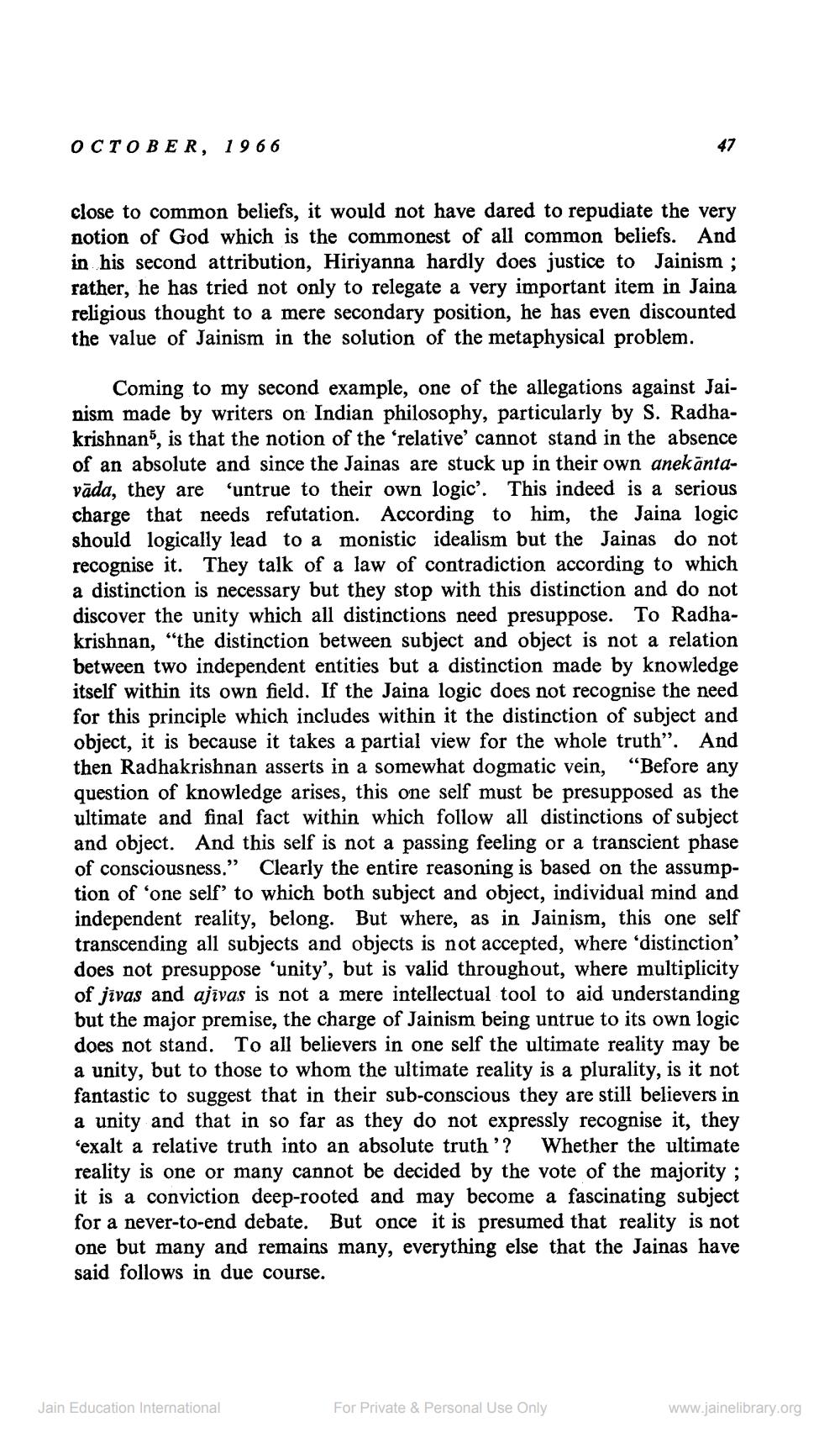Book Title: Jain Journal 1966 10 Author(s): Jain Bhawan Publication Publisher: Jain Bhawan Publication View full book textPage 7
________________ OCTOBER, 1966 close to common beliefs, it would not have dared to repudiate the very notion of God which is the commonest of all common beliefs. And in his second attribution, Hiriyanna hardly does justice to Jainism ; rather, he has tried not only to relegate a very important item in Jaina religious thought to a mere secondary position, he has even discounted the value of Jainism in the solution of the metaphysical problem. Coming to my second example, one of the allegations against Jainism made by writers on Indian philosophy, particularly by S. Radhakrishnans, is that the notion of the ‘relative' cannot stand in the absence of an absolute and since the Jainas are stuck up in their own anekāntavāda, they are 'untrue to their own logic'. This indeed is a serious charge that needs refutation. According to him, the Jaina logic should logically lead to a monistic idealism but the Jainas do not recognise it. They talk of a law of contradiction according to which a distinction is necessary but they stop with this distinction and do not discover the unity which all distinctions need presuppose. To Radhakrishnan, "the distinction between subject and object is not a relation between two independent entities but a distinction made by knowledge itself within its own field. If the Jaina logic does not recognise the need for this principle which includes within it the distinction of subject and object, it is because it takes a partial view for the whole truth". And then Radhakrishnan asserts in a somewhat dogmatic vein, "Before any question of knowledge arises, this one self must be presupposed as the ultimate and final fact within which follow all distinctions of subject and object. And this self is not a passing feeling or a transcient phase of consciousness." Clearly the entire reasoning is based on the assumption of one self' to which both subject and object, individual mind and independent reality, belong. But where, as in Jainism, this one self transcending all subjects and objects is not accepted, where 'distinction does not presuppose 'unity', but is valid throughout, where multiplicity of jivas and ajīvas is not a mere intellectual tool to aid understanding but the major premise, the charge of Jainism being untrue to its own logic does not stand. To all believers in one self the ultimate reality may be a unity, but to those to whom the ultimate reality is a plurality, is it not fantastic to suggest that in their sub-conscious they are still believers in a unity and that in so far as they do not expressly recognise it, they 'exalt a relative truth into an absolute truth'? Whether the ultimate reality is one or many cannot be decided by the vote of the majority; it is a conviction deep-rooted and may become a fascinating subject for a never-to-end debate. But once it is presumed that reality is not one but many and remains many, everything else that the Jainas have said follows in due course. Jain Education International For Private & Personal Use Only www.jainelibrary.orgPage Navigation
1 ... 5 6 7 8 9 10 11 12 13 14 15 16 17 18 19 20 21 22 23 24 25 26 27 28 29 30 31 32 33 34 35 36 37 38 39 40 41 42 43 44 45 46 47 48
